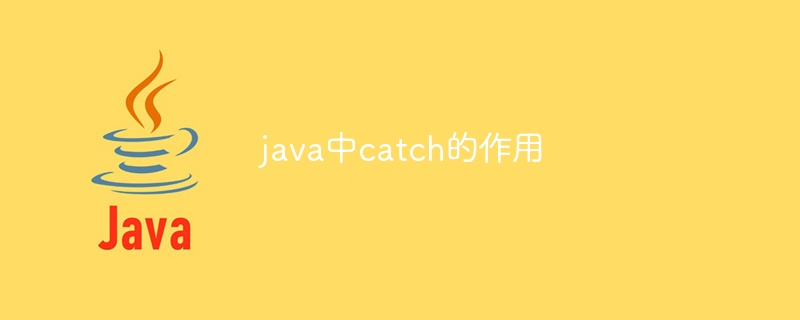Home >Java >javaTutorial >The role of catch in java
The role of catch in java
- 下次还敢Original
- 2024-04-26 21:39:161340browse
catch keyword is used to catch exceptions in Java to prevent the program from crashing. It specifies an exception handling block that is executed when an exception matching the exception type specified in the block occurs. Uses include error handling, error recovery, logging, and control flow.

The role of the catch keyword in Java
The catch keyword is used to catch exceptions in Java for easy processing to prevent the program from crashing. It specifies an exception handling block that will be executed when an exception occurs that matches the exception type specified in the block.
Syntax
<code class="java">try {
// 可能会引发异常的代码
} catch (ExceptionType1 e1) {
// 处理 ExceptionType1 异常的代码
} catch (ExceptionType2 e2) {
// 处理 ExceptionType2 异常的代码
}</code>
Usage
catch block is used for the following purposes:
- Error handling: Catch errors and provide friendly messages or recovery operations.
- Error recovery: Try to re-execute the code or perform other operations after an exception occurs.
- Logging: Log information about exceptions for debugging and troubleshooting purposes.
- Control flow: Change the program flow according to the exception type.
Note:
- A try block can contain multiple catch blocks to handle different exception types.
- The exception type in the catch block must be a checked exception or a runtime exception.
- If there is no matching catch block, the exception will be propagated to the calling code.
- The exception object in the catch block is accessible via e (for example, e1, e2), which provides detailed information about the exception.
The above is the detailed content of The role of catch in java. For more information, please follow other related articles on the PHP Chinese website!

